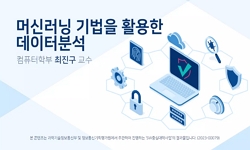본 연구는 머신러닝 기법을 적용한 디지털 감사기법에 대한 연구로 국내외 사례와 한국철도공사 사례를중심으로 살펴보았다. 디지털의 전환은 감사부문에 있어서 많은 변화가 예측되며 또...
http://chineseinput.net/에서 pinyin(병음)방식으로 중국어를 변환할 수 있습니다.
변환된 중국어를 복사하여 사용하시면 됩니다.
- 中文 을 입력하시려면 zhongwen을 입력하시고 space를누르시면됩니다.
- 北京 을 입력하시려면 beijing을 입력하시고 space를 누르시면 됩니다.

머신러닝 기법을 적용한 디지털 감사기법에 관한 연구 - 한국철도공사 사례를 중심으로 = A Study on Digital Audit Techniques Applying Machine Learning Techniques- Focusing on the cases of KORAIL
한글로보기https://www.riss.kr/link?id=A109733716
- 저자
- 발행기관
- 학술지명
- 권호사항
-
발행연도
2025
-
작성언어
Korean
- 주제어
-
등재정보
KCI등재
-
자료형태
학술저널
-
수록면
113-140(28쪽)
- 제공처
- 소장기관
-
0
상세조회 -
0
다운로드
부가정보
국문 초록 (Abstract)
한편 본 연구는 다양한 공공기관의 디지털 감사기법과 디지털 감사 도입과 운영으로 인한 문제점을 다루지 못한 한계점은 있지만 자체 기관 특성에 맞는 시나리오 개발로 디지털 감사기법 적용 가능성과 함께향후 디지털 감사 발전에 방향성을 제시 했다는데 그 의의가 있다고 하겠다.
본 연구는 머신러닝 기법을 적용한 디지털 감사기법에 대한 연구로 국내외 사례와 한국철도공사 사례를중심으로 살펴보았다. 디지털의 전환은 감사부문에 있어서 많은 변화가 예측되며 또한 감사기법에 있어서미래에 중요한 역할을 할 것이다. 디지털 감사는 IT 기술을 활용한 감사업무의 혁신으로 감사기구 감사자의IT역량과 감사부서의 IT인프라 구축 및 감사자의 IT 기술 활용이 상호 연관되어 발전하는 것이다. 따라서본 연구결과는 다음과 같은 시사점과 디지털 감사의 방향성을 제시한다. 첫째, 디지털 감사로의 전환은 단순한 IT 인프라 구축이 아니라 머신러닝, 딥러닝 등 감사자원의 고급 역량 강화로 감사의 질적인 향상을 도모해야 한다. 둘째, 자체 기관의 업무 특성을 고려한 시나리오 개발과 연구 가설을 통해 디지털 감사기법의적용에 대한 지속적인 연구가 필요하다. 셋째, 감사원, 공공기관, 민간기업 등에서 추진하고 있는 디지털 감사기법에 대한 상호 정보공유와 체계적인 연구가 필요하며 이는 디지털 감사의 이론적, 실제적 발전을 가져오는 계기가 될 것이다.
한편 본 연구는 다양한 공공기관의 디지털 감사기법과 디지털 감사 도입과 운영으로 인한 문제점을 다루지 못한 한계점은 있지만 자체 기관 특성에 맞는 시나리오 개발로 디지털 감사기법 적용 가능성과 함께향후 디지털 감사 발전에 방향성을 제시 했다는데 그 의의가 있다고 하겠다.
다국어 초록 (Multilingual Abstract)
On the other hand, this study has certain limitations in that it does not fully address the challenges may arise by the introduction and operation of digital audit techniques and digital audits in various public institutions. Nevertheless, its significance lies in presenting the direction for future digital audit development along with the possibility of applying digital audit techniques by developing scenarios based on the specific characteristics of each institution.
This study is a study on digital audit techniques applying machine learning techniques, focusing on domestic and foreign cases, particularly those of the Korea Railroad Corporation (KORAIL). Digital audit represents an innovation of audit work using I...
This study is a study on digital audit techniques applying machine learning techniques, focusing on domestic and foreign cases, particularly those of the Korea Railroad Corporation (KORAIL). Digital audit represents an innovation of audit work using IT technology, which contains the development of the IT competence of the audit organization auditor, the IT infrastructure of the audit department, and the utilization of IT technology by the auditor. Based on the findings, this study suggests the following implications and direction of digital audit: First, the transition to digital audit should not be limited to building simple IT infrastructure, but it needed to focus on improving the quality of audit by strengthening the advanced capabilities of audit resources such as machine learning and deep learning. Second, it is necessary to continuously study the application of digital auditing techniques through scenario development and research hypotheses considering the work characteristics of its own institutions. Third, mutual information sharing and systematic research on digital audit techniques promoted by the Board of Audit and Inspection, public institutions, and private companies are needed, which will lead to the theoretical and practical development of digital audit.
On the other hand, this study has certain limitations in that it does not fully address the challenges may arise by the introduction and operation of digital audit techniques and digital audits in various public institutions. Nevertheless, its significance lies in presenting the direction for future digital audit development along with the possibility of applying digital audit techniques by developing scenarios based on the specific characteristics of each institution.
동일학술지(권/호) 다른 논문
-
적극행정의 영향요인에 관한 연구: CatBoostRegressor와 SHAP을 활용하여
- 감사연구원
- 김민한
- 2025
- KCI등재
-
예비타당성조사에서 시행되는 AHP의 적용과 특성에 대한 고찰
- 감사연구원
- 안태훈
- 2025
- KCI등재
-
공공기관 감사역량과 청렴도 간의 관계 : 감사인력의 조절효과를 중심으로
- 감사연구원
- 이재연
- 2025
- KCI등재
-
지방자치단체 정부합동감사의 효과성과 영향요인에 대한 연구
- 감사연구원
- 김정인
- 2025
- KCI등재




 KCI
KCI







